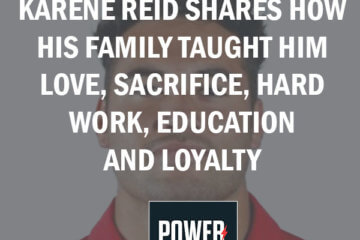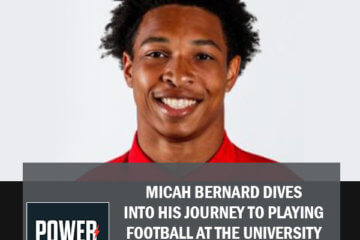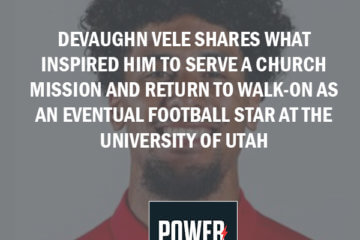Listen to the podcast here
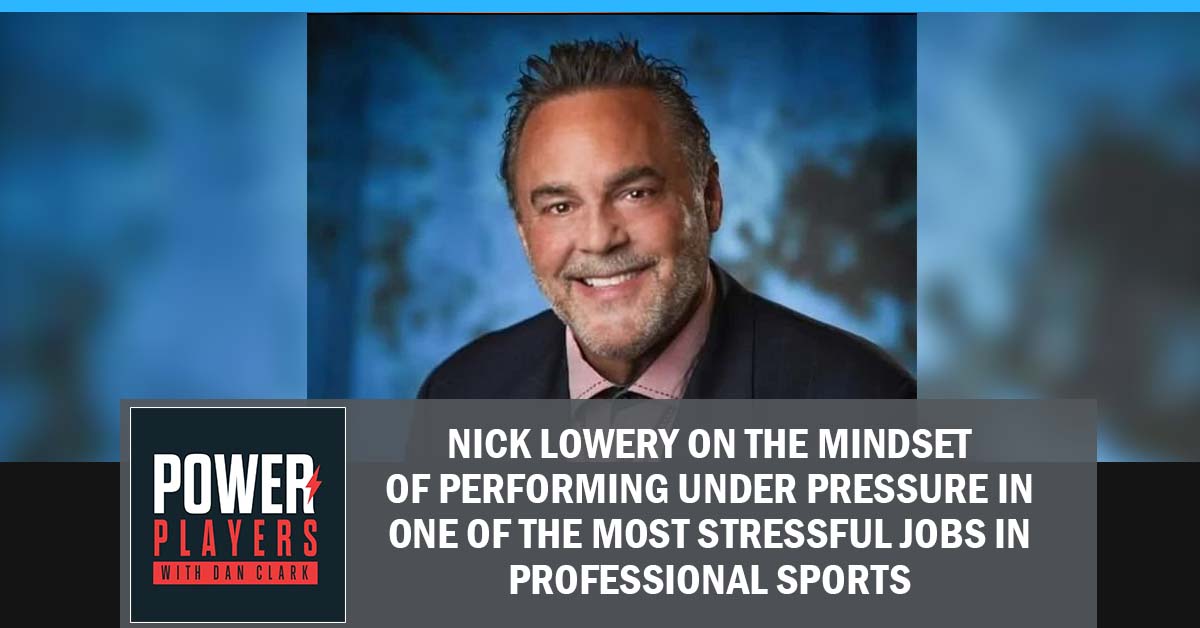
How many times have you been declined, rejected, or fallen short of reaching your dreams? We go through so many transitions in life; some, if not most, turn out to be disillusioning. But imagine how much more disappointing it would be if you gave up trying? In this heartwarming episode, Former American football placekicker Nick Lowery proves that everything falls into place when you keep at it and never give up. He gives a glimpse into the mindset of performing one of the most stressful jobs in professional sports, how that mindset plays into his philanthropy projects, and how he uses his influence to help society see beyond the social issues and focus on the people. Tune in and let Nick’s passion inspire you to make a difference in the world.
—
Nick Lowery On The Mindset Of Performing Under Pressure In One Of The Most Stressful Jobs In Professional Sports
In this episode, we have Nick Lowery, my friend, my hero, a true mentor, Hall of Fame NFL Kicker, Dartmouth graduate, Harvard graduate, sports commentator, speaker, author, philanthropist, and one of the most respected retired professional athletes in the world. He’s a champion, not just on the field, but what he has done to turn his life into significance.
Since his retirement after playing eighteen seasons in the NFL, he shares his life and climbed to the top of this profession as a seven-time all-pro superstar for the Kansas City Chiefs and the most accurate kicker of all time, who kicked the second most field goals in NFL history, giving us an inside glimpse into the mindset of one of the highest stress anxiety field jobs in the entire world.
Think about it. A kicker is only brought into a game under the most competitive, stressful high-pressure situations. He did it for eighteen years, presenting a formula to align and explode your way to confidence and extreme success under pressure. This is an episode that you’re going to want to read, reread, and share with all of your friends, especially if you’re a sports fan and you understand the significance of teamwork, not just team building. My guest is an amazing human being.
Dominick Lowery goes by Nick Lowery. He played in the NFL as a Kicker for 18 seasons, 14 of which were with the Kansas City Chiefs. He’s in the Kansas City Chiefs Hall of Fame. Since 2018, there’s not been a better kicker on the planet as far as the number of points scored total. In his eighteen-year career, Nick Lowery has scored 1,711 points, 80% field goal percentage made as long as a field goal, 58 yards, if you think about that one. He has kicked more field goals than any other player in NFL history.
Let me amend that. That was when I retired because Morten Andersen would have something to say with who played 26 seasons. He was pretty darn good, too. I’m proud to say that when I retired, I had the most 50-yarders, most field goals, and best percentage. Records are made to be broken, but I’m proud of that and I appreciate you’re saying that.
I want to give a couple more statistics so we can get the heart and soul of Nick Lowery, the man behind number eight for the Chiefs. He also played for the Patriots, which is a cool story, and was drafted in 1978. We’ll have him share the details of how he walked on for the New England Patriots, played for the Jets, and his fourteen, very profitable and amazing years for the Chiefs. I’m a huge Chiefs fan.
The thing that I want you to know most about Nick is the heart of a champion. When you see an elite athlete like Nick, you see more than muscle and bone going through the motion. You see heart and desire, but in his mind, it’s service before self. I want to go right to the heart and soul of a kicker. For some reason, you make your money as an expert in performing under pressure. We’ll get to that in a moment. He does have Utah ties as a University of Utah alumni and his dad attended the University of Utah.
He graduated in 1938 and went to East High School.
His aunt was Utah Citizen of the Year. She was born with cerebral palsy. What another great inspiration in your life.
If you keep working at it, it’s amazing what place you can find yourself in.
She got her college degree. She taught herself how to type even though she had spasticity. She’s an incredible human being. She was a librarian for the University of Utah and a professional writer. That was the first foray into philanthropy for me, trying to find balance in my life, playing for the Chiefs. To honor her seemed to be the best way to say, “Thank you, God, for giving me a chance to make it here and keep me humble.” In the midst of complaining about a hole in your socks or something stupid like that, when a kid with cerebral palsy has a victory like learning how to tie their shoe when they’re twelve years old helps remind you that life isn’t that bad.
Nick Lowery was born in Munich, Germany. His dad was a superstar, World War II Pilot, and real-life hero. He attended Dartmouth University. He does have some brains behind that football helmet. He graduated from the Harvard Kennedy School of Government. That’s why he understands service before self and leaves everybody around him saying, “I like myself best when I’m with you. I want to see you again. You’re one of my heroes.”
We have so many things in common. One of the great tragedies in American history was the trio of assassinations of John F. Kennedy, Bobby Kennedy, and Martin Luther King. I feel humbled that I have an obligation to carry that torch, and hopefully others as well. The most famous line arguably in the history of inauguration speeches by presidents was, “Ask not what your country can do for you, but ask what you can do for your country.” To turn that on its side and remind ourselves we can always help people. By the way, the only reason he says these good things about me is because he’s a very giving human being, too, and knows that’s important so thank you.
I’ll tag onto President Kennedy’s famous line that you quoted. I’ve mentored Zig Ziglar, motivational teacher extraordinaire. He reminds us all that you can get anything in this life that you want if you’re willing to help enough other people get what they want. Since we’ve become instantaneous connected at the hip bros, you have validated the wealth flows through you, not to you. You are a philanthropic soul.
We’re going to get to that, but let’s get back to the football career. I’m intrigued by the story of 1978. You’ve been kicking for Dartmouth. You know you can do it. Take us back to the experience of you thinking or believing that you should be or will be drafted. It does not happen. What happens? Take us all the way up until you are finally given the opportunity to go out on a field and kick an NFL ball.
To be a professional athlete is something that many kids dream of. In my junior year, I was the only kicker maybe ever to have no missed extra points or field goals. I knew I had the potential to go in an entire season without moving. In my senior year, I got too much in my head and didn’t have that great a year. I was called by the Cleveland Browns after the draft. They had someone come up to try to convince me to be an apprentice to Don Cockroft. You probably haven’t heard of him, but he was the first kicker and punter to be pretty good at both, maybe the only one, and then the Jets. I thought, “I’ll go to New York.”
Back then, in that process, as a kicker, you could kick off the tee in college, but you could not do that in the pros. You had to kick off the ground. You had to adjust and the pressure is so different. If you miss a field goal in college, most people are not going to hang you. In the pros, it’s different. I knew that it was going to take time to get used to that. It’s 1.25 seconds. The ball snapped at eight yards, caught, spun, and you’re looking at the ball, not spinning to kick it for 1/10th of a second as you’re moving towards it. Part of that narrative was, “It’s going to take a while to get used to this, but I want to try.”
At 6’4”, you obviously had the leg strength and had the confidence knowing that you had done it before you can continually do it, but you didn’t get drafted. What did you do about it?
I’m in training camp with the Jets and going against Pat Leahy and Walt Michaels. The coaches said, “We’re playing in San Diego off the baseball infield there.” I missed badly two field goal attempts off of the infield when it was my job to lose. I lost it. Another reference for me was when you were going after your dreams, there’s a part of you that’s saying, “What happens if I fail? Is it the end of my dream?” That’s what I thought.

Stressful Jobs: If you’re willing to put yourself in an uncomfortable place of growth, look at how much better you can be and how much more happy and satisfying your life will be because you’re doing what you were supposed to do.
I remember flying home, going, “I guess that’s the end of it.” A couple of days later, a voice was saying, “You’re just getting started. How can you get used to this if you don’t keep putting yourself out there?” While there are so many self-help people saying, “In one month, you can turn around your life,” and there’s truth to that, truly for me, it was two years.
The person that I was with at the beginning, who was scared when I started, was able to have the confidence to know that I had paid my dues and could beat out a guy named Jan Stenerud, the greatest kicker in the history of the NFL at that point, who played six more years. He was in the middle of his career because I was ready then. For those of you who think, “I’m never going to make it,” give me a call in two years. If you keep working at it, it’s amazing what place you can find yourself in.
You go to the Jets and get cut. They’re saying, “Thanks for showing up. Here’s a hotdog and a ticket home, and you leave.” Did you have to pay your own way to the Jets or did they pick up the tab?
They flew me in. I signed with them, but nobody gave me any money. It was the chance as an Ivy League player to make it. I was a skinny kid. I had a strong leg, but what was interesting was I did get stronger. Tryouts with the Patriots came a month later. I showed up on the doorstep at Sullivan Stadium in Foxborough because their kicker, John Smith, was injured. I knocked on the door and the fading light in the parking lot was emptying. I told the receptionist who was like, “Who’s this guy?” “I’m better than the kicker you guys have brought in,” because their kicker was hurt and arrogant. You got to be that way. You got to have some confidence in yourself.
Fairbanks stuck his head in, and I said the same thing to him. He said, “We’ll take a look at you.” He walked down there. I got on my shoes and my outfit down in the locker room with a big red carpet in the Patriots locker room. I was 17 for 17 back to 53 yards. Oftentimes, you don’t know what you’re capable of until you put yourself in that situation. I was so turned on and excited to have another chance. It wasn’t the end of my career, as I had felt after blowing those two kicks badly against San Diego. That became a pattern of, “I may be wasn’t ready yet, but I’m getting better and getting ready for the next one.” That was the pattern for two years.
It’s the perfect lesson in life on how to become a power player. The power is within. All we have to do is figure out a way to get it out. It’s this concept of, “You’ve got to think outside the lines and outside the box. What if the answers are still in the box and you’re proven it true time and time again?” With the Patriots, did they say, ”We’ll sign you now? You went 17 for 17 up to 53.”
There’s a Monday night game where ironically, the kickoff man for the Patriots because John Smith was injured, was Jerrel Wilson, who was a punter. It was a Monday night game. It was Washington. At the end of the game when the Patriots scored with a minute left, Jerrel Wilson had to kick off because Smith was injured. He kicks a line drive and Washington returns it 95 yards for a touchdown.
The next day, they bring me in and say, “We don’t know what we’re going to do with you because we don’t know about a kicker.” I said, “You need somebody to kick off.” I found myself signing a contract twenty minutes later. By the way, there was no bonus, just $32,000, but for me, it was awesome. My salary with the Chiefs two years later was $30,000 plus I made a couple of bonuses. That’s the way it was. Tom Condon, my buddy and teammate, told me when he started five years earlier, his salary was $18,000. Things have changed.
My buddy songwriter, extraordinary Grammy Award-winning Mike Reid played for the Cincinnati Bengals out of Penn State was the number one player picked in the first round, and his salary was $75,000.
Sometimes, you don’t know what you’re capable of until you put yourself in that situation.
Back then, it wasn’t about the money. It was to make it. It was a bucket list thing. You don’t want to just make it. You want to be good. That was a never-ending process. In the end, you realize that. You always can get better. You always work to get better. That’s the only way you can stay ahead of the game.
When you left the Patriots, did you go to the Chiefs and that’s where you ended your career?
I tried out with Tampa Bay. I showed up in Philadelphia and they kicked me out. They wouldn’t even see me. I went back to the Jets, New Orleans, and the Redskins for two games. I played two games for the Redskins because Mark Moseley’s thigh was also injured and that’s my hometown. I kicked a field goal and missed an extra point. I’m learning to get under the ball.
I’d never missed an extra point in college. The next week I kick a field goal and missed an extra point. I remember two Redskins fans standing on the dugout because that was RFK Stadium. I don’t mean revenge, but it’s karma. They’re standing there and as they go under, they go, “Lowery,” with smiles on their faces, “You suck.”
Four years later, in 1993, the Super Bowl Champion, Redskins in RFK Stadium. My mom and dad are there. My twin sister has flown in from New Zealand. She’s freaked out watching her brother. I kicked the longest field goal in the history of the NFL still in the first quarter, 58 yards. It was this far inside 59. I kicked four field goals in the first half. We’re up twelve-nothing against the Super Bowl champions. Bill Kenney, our quarterback, got thrown for 300 yards. A guy named John Riggins ran for 130 yards in the second half. We lost 31 to 12.
My parents were happy because the Redskins, our team growing up, won and I had a good game. That was the longest field goal in the history of RFK Stadium because they now play in another stadium. It was retribution in some ways, or maybe it’s simply confirmation that if you stick with it, whatever the wounds of the past can be painted over nicely.
As you’re sitting there thinking, “Can I do this, too? What happens if I quit before my time comes?” You were a 7-time all-pro kicker and a 3-time pro bowler. What’s the message of never giving up? What kept you going no matter what? As you continually pursue your dream, you went from team to team. Eventually, someone’s going to say, “When your horse dies, dismount, and shoot it.” You kept climbing on and saying, “I’m going to get a different horse. I’m going to ride a new one.” You kept doing it until the Chiefs. Did they negotiate? Did they invite you? Did you have to knock on their door as well?
It’s a great story. At the end of two years, I’ve been cut by 8 teams 11 times, including the Jets and Walt Michaels who are still there. Ironically, Lou Michaels, a kicker, was his brother. They fly me in because their kicker was not doing well. I outkicked the other three kickers badly. I was so much better. Walt Michael brings me in and said, “We had you a year and a half ago, so we already know what you can do. We’re not going to keep you.”
I’m not sure if anybody knows the kicker they signed, but he never played after that season. It was like the end to me. I got a job working for the Senate Commerce Science and Transportation Committee for Senator Bob Packwood. I was working on aviation deregulation and aviation safety. That was it. I was moving on. I get a call from Jim Schaaf. I’ve been sent contract offers from Cleveland and Baltimore back then the Colts. There’s no money. I got to move on.

Stressful Jobs: We’re all here to help make sure that we keep this country together with the values that we always had, which is serving a bigger purpose than just ourselves.
This is a great job. There are only attorneys besides me on that, besides the secretaries. I’d never heard Jim Schaaf’s name before calls up during the wildcard games on a Saturday. I’m lying on my parent’s bed. I go into the bathroom to take the call. He said, “Jim, I’m sorry. I had back surgery. Marv Levy, our coach, was with the Redskins. He was a special teams coach. He appreciates kickers. We think you might have what it takes.” I said, “Thanks, but no thanks.” I hung up.
This is another important lesson for me. If you go through your life going, “What if I hadn’t, or what if I did?” that pathway in your life can be completely different. I didn’t have his phone number. I didn’t know how to spell his name. I would have gone to probably Georgetown Law School and worked in the Senate and who knows what else? I called a mentor. That’s an important thing to have. Dick Johnson, who had been my coach for a long time, said, “You’ll always wonder.” I’m like, “How do I find this guy?”
I called Kansas City information. I guess it’s James Schaaf. I don’t know how I spelled it right. There were two James Schaafs. I called the first one who wasn’t there. For the second one, I said, “Where would he be if he had back surgery?” There was no internet in 1980. The woman goes, “Try this number.” I called there. No. I said, “Where would he be with a back surgery?” One hour after, a stranger called me up. This is the lifeline of your destiny by a thread. I found Jim Schaaf in his bed at Research Hospital. He had back surgery. It totally blew him away that I could find him. We talked for an hour.
They flew me in the next week to snowy Kansas City. They offered me $2,500 which is a joke, and a salary of $30,000. They also said they would bring me in in May, not for training camp, which I liked. That helps you get more comfortable and less intimidated. I signed with them and ended up beating out the greatest kicker in the history of the game. I was feeling like I paid my dues and was ready. I was not ready two years earlier. It’s the amount of personal change.
In general, you can put yourself through if you’re willing to put yourself in that uncomfortable place of growth, how much better you can be, and how much happier and satisfying your life is because you’re doing what you were supposed to do. That gratitude is what led me to then listen to those other better angels, say, “Do something with this. Help other people.”
If you’re sitting there, reading this, wondering if your glass is half empty or half full, it’s refillable. Thinking positive or thinking negative doesn’t fill up the glass. The pouring does. It’s easier to act your way into positive thinking than it is to think your way into positive action. Take the action and you’ll feel good after. Everybody thinks you have to feel good before you can act good, that’s wrong. You proved that even after retirement.
I’ve never heard it put that way. That’s beautiful.
I’m at an NFL Monday night football game in Kansas City Chiefs’ Arrowhead Stadium cheering on my Oakland Raiders. It was the season that Joe Montana and Marcus Allen were traded to the Chiefs. I’m sitting there on my hands so I don’t get stabbed in the good seats in the stadium as a Raiders fan. Joe Montana threw perfect passes and they were dropped by these apparent ninth-round draft picks because they couldn’t catch a cold little on a football. Yet in that game, the Chiefs still figured out a way to beat my Raiders. Tell me how they did that.
Somebody kicked five field goals. Huey Lewis, the singer, was next to me against the kicking net on the sidelines. What made it surreal is Joe Montana on your team. It is like a rock concert. It’s supposed to be Joe Montana against John Elway, two of the greatest quarterbacks of all time. I’m running on the field. After I kicked a 52-yarder in a 45-yarder, I had four field goals in the first half. Huey Lewis looks at me, and goes, “This is easy for you. Isn’t it?” It was so cool.
It’s a never-ending process. You can always work to get better. That’s the only way you can stay ahead.
The next day USA Today had a headline, “Kicker Upstages Montana, Lowery kicks five goals.” I showed it to Joe Montana the next day and he said something I can’t repeat. He wasn’t very happy, but here’s the other cool thing I haven’t told you yet. I had worked that off-season for President Clinton in the White House Office of National Service, launching AmeriCorps. Speaking of Kennedy, the Peace Corps also met JFK. There’s a famous photo of them in the oval office.
AmeriCorps was the idea to create another way to serve your country, not just in the military. Everybody can serve and make a difference. The White House Rose Garden ceremony to sign that was the next day. Senator Dole, the Republican Majority Leader, who had opposed Clinton’s budget reconciliation said, “Mr. Clinton, you were going to have to come through me.” I had campaigned for Dole. I’d worked for his wife when she was Secretary of Transportation in ‘83 and he’s from Kansas City. I met with Eli Segal, the Head of the Office of National Service, and said, “You don’t have to support this, but don’t oppose it. Don’t get in the way.”
AmeriCorps became the first major legislation or at least important legislation of the Clinton administration. Here’s this red Rose Garden ceremony. I couldn’t be there. I was sad because it meant so much to me. I get a letter three days later from the White House. It was personally written by Bill Clinton. He says this beautiful thing. I feel so lucky in my life. He goes, “Nick, great game Monday night, all your National Service pals are proud. I thought of you when I signed the bill. The kids of this country will be better for it and so will the rest of us.” That was a game that was an incredible, beautiful gift for me. Joe and I learned to get along after that.
For you all that don’t know about AmeriCorps, it’s two years, you’re paid about $4,600 to dedicate yourself to helping a poor neighborhood, develop relationships sometimes with drug dealers, whatever it takes to say, “We’re here to make your community better. Work with us.” It’s like what I said to Senator Dole, “Don’t oppose us. Let us help.”
It’s a way to develop and encourage this heartbeat of the best in America. There are all of these negative stories across the country about how we’re divided. We’re not divided about service and contributing. We all know that’s the better part of our lives. I’m here. You’re here. We’re all here to help make sure that we keep this country together with the values that always had, serving a bigger purpose than ourselves. That will stay with you for the rest of your life.
One more question that everybody wants to know the answer to, especially me before we move on to your philanthropy, what you’ve done while you were still a player, and what you’ve been doing since you’ve retired. Under pressure, you don’t rise to the occasion. You fall to your level of training. Pressure is not something that’s naturally there. It’s created when you question your own ability. When you know what you’ve been trained to do, there’s never any pressure. That’s why we train to practice so hard. In life, there are no mistakes, only lessons.
I want to know and so does everybody else, with your body, your mind, and your athleticism, how in the world would you or anybody with a right mind choose the most pressure-packed job on the planet? “Nick, we’re behind by two points. We need this. If you miss, you’re fired. If you miss in Kansas City, somebody might burn your house down.”
How do you quiet your mind? How do you go to that confident place and come clean when they say, “Kick, go?” Talk to us about the two angels, the devil on one side, saying, “You, lousy bomb.” I remember when you miss this kicker and nobody would date you for seventeen weeks. The angel says, “Nick, you’re all that in a bag of chips. We love you. You’ve never missed anything.” Talk to us about this battle in your mind and your ego.
Number one is you got to expect it’s going to come down to you. I would also say that at least for those 1.25 seconds, it is the most pressure-packed position in any sport in the world. It is. I’m running on the field. I remember moments when a horse is going, “I am scared. I hate this job. This is horrible. It’s so much pressure.” The other part of you says, “I’ve spent not hundreds, but thousands of hours. I’m visualizing every week, the situation, the team, how it smells, how it feels, the temperature, the wind, the opponents, and everything.” I’m an actor saying I’m ready and make that situation so real. I was a Drama major my first two years in college and switched to Government.

Stressful Jobs: The greatest ability you can ever have is to surround yourself with good people in your personal, private life to reinforce those values.
I kept doing that. It may be helped because I would portray the situation a thousand times in practice, mentally and physically, even with the weightlifting and the stretching. As I did the weightlifting and the stretching, how does that translate to the kicking? Automatically I could kinesthetically, which is kinesthetics, how it feels to you, the linkage between your physical senses and your brain. I would feel that with the moment in the game itself. When I came to the game and I’m running on there, I could overcome and transcend that big voice saying, “I’m scared,” and focus on the training, trust it, and attack it.
I want to share with you a phrase I developed towards the end of my career. As I’m approaching the ball, it’s two and a half steps. My left foot is the plant foot. I would go left foot and explode. I’m not sure what it is for you, but the left foot was aligning yourself point right at the target. Your target is your purpose. Align yourself. That left foot is your daily discipline, whatever that is, your craft, loving the work, loving the craftsmanship. Explode for me was my message, “Relax. Let it go. Trust God. Trust your skills. Trust your gift.” When you are self-conscious, research shows that the large muscle groups, the ones that aren’t deaf, the ones that would prevent Steph Curry from shooting three-pointers from 40 feet like it’s nothing, take over.
If you attack it with confidence, your natural synapses in your brain which work 100,000 times faster than your conscious brain, take over. As good as I was before I turned 34, and the cover of Kansas City Star Magazine said, “Nick Lowery is one of the greatest kickers in the NFL history, but at 34, his time is running out.” I was 77% at that point. I kicked 87% after that. I’m proud. All the wisdom, all that game experience, which you can then use in your life, too, made me better. I’m very proud of that. I don’t have a lot of regrets.
You didn’t retire. You refired. Let’s shift gears. Talk to us about your foundation and what matters most to you. You started a foundation while you were still an active player in Kansas City and focused on youth issues. I know so much about that. I’m so proud to be a friend.
Thank you, brother.
Let’s talk about how you escalated that and took it to the highest level possible. As we wind down our discussion, I want people to know the heart and soul of Nick Lowery. You can look up the statistics and the cute little picture of you with the Number 8. Let’s go to what matters most and that’s what lasts the longest.
I was talking about cerebral palsy and my Aunt Margaret who’s here and honoring her. I’ll never forget having her on. I would host the telethon for UCP in Kansas City. I’ll never forget we had her in there, holding my dad’s hand on my left hand and her on my right, wondering if she was going to panic a little bit because of her speaking challenges. She was like Walter Cronkite on there.
Those are the references you get when you align your purpose, your lives, and your gifts. You become a huge television station like CVS, broadcasting and attracting the right energies. Your intuition grows. You get better at it and better at it. I have so many references to that so UCP helps. We won the Cerebral Palsy National Award. We started a program for inner city youth.
Each one of these, AmeriCorps, the Points of Light Foundation working for HW Bush help give more references to how much it is and what matters to you, starting Native Vision in 1996, which was on Oprah two years later. Out of the blue, my best friend from college, Steve Bova’s wife, Alison Barlow, on their wedding night, I was best man, said, “Would you start a football camp for Native Americans?” I hadn’t thought a lot about Native Americans, even though I played for the Chiefs and went to Dartmouth, which originally was a school for Native Americans. It’s the Eliezer Wheelock School for Native Americans.
Change is hard to see, but it’s not hard to feel.
I started to work with them. Once again, it’s the same thing. Native American kids are like any kid. They need love, structure, encouragement, and consistency. They need to have someone look them in the eye and say, “You’re as great as I am. It’s going to happen for you.” Each one of those programs helped me with what matters the most. The most important program for me now is called Champions for the Homeless. In a way, you think of Native Americans, the Ute tribe, you name it. Maybe they’re homeless, having had their ancestral lands taken away.
We’ve done leadership programs. I went back to Harvard, got my Master’s, and developed a fellowship called Nation Building for Native Youth. We’d done that for several years. Change is hard to see, but it’s not hard to feel. I feel that Native American kids, this new generation, the kids that were 17 when we started Native Vision are now 43 with 2, 3, or 4 kids. They’re confident at a level. They have skill sets and leadership abilities.
That translates. I’ve done anti-bullying programs where I was told there were 2 kids out of a school of 2,000 that were fighting. They were leaders in the school. No one told me who they were. I did this example because this is about the gifts of the spirit and your intuition, which is way beyond conscious. I picked out two people. The first person represents the snapper in the offensive line. That’s what I say is the field goal. You’re the kicker. Your offensive line is your family, your community, what you grew up with that you didn’t choose. It’s what you grew up in. Hopefully, it was good, and sometimes it wasn’t.
The holder who represents who you as an adult, a mature person, choose to surround yourself with, which is the greatest ability you can ever have, surrounded yourself with good people in your personal private life to reinforce those values. The kicker is you. What are you going to do with your moments of truth? What are you going to do to align yourself with something that matters with your gifts?
Afterward, the principal and the superintendent of all the schools in Lake Geneva, Illinois, run up to me. They go, “How’d you do that?” I said, “What?” They said, “You pick the two people. They were 100 feet apart. These are the two people that we know were creating this issue because they were so well-respected as athletes, but they were attacking each other on social media. You pick them.”
Those insights are so beautiful because as athletes, you’re not this way. Let’s say there’s a narcissistic culture where we begin to think it’s all about us. People keep patting us on the back. There’s criticism. Don’t get me wrong. It’s to find those antidotes where you get past your ego, which was helpful in developing your character and your identity. As you get older, hopefully, there’s always a choice between ego and spirit. What builds my spirit to be stronger, to help others, and also to love myself in the midst of all the adversity that all of us have gone through in the last few years?
Let’s focus on the homeless. Your mission and purpose statement is to make sure everyone looks at homeless people as people, not as the homeless. Talk to us about that and tell us a little bit about your foundation, your cause, and how many events you have a year.
We have 5 or 6 events a year at St. Vincent De Paul’s in Downtown Phoenix. I’m not even sure why, maybe because I’d played fourteen years in Kansas City and then suddenly had to go to the Jets, that sense of losing my home. I may be sensitive to it. Historically, one of the great, if not the greatest unfinished chapter in American history is with Native Americans. Do you know that Abraham Lincoln, arguably our greatest president, whose whole war against the South was based on slavery and that all men are created equal sent battle-hardened Civil War troops to wipe out the Indians before the end of the Civil War? There are always contradictions in history.
It felt right to say, “We want you to know that pro athletes and Olympic gold medalists will come out for three days every year, paid nothing to let you know that we love you.” It is that same sense for the homeless. If you look them in the eye as we do with 1,000 homeless, we give them 1,000 flowers, and 1,000 gift certificates to Starbucks, and McDonald’s as an opener to create a conversation. We grew from 20 volunteers to 500 on Thanksgiving, Christmas, Easter, and in the summer twice because it’s so hot in Phoenix.

Stressful Jobs: When we understand each other as human beings, we treat each other very differently.
I tell the volunteers beforehand for about fifteen minutes, “We’re also used to doing and handing something.” You’re handing coffee, food, clothing, flowers, or whatever. None of that matters. What matters is that you look every person in the eye, our homeless brothers and sisters, and let them know, “We love you. You are as important as us.” You see these months and years of abuse and these shells of protection melt away almost instantly.
We have put a human face on the homeless in Phoenix. We made Phoenix the first city to provide free COVID testing for the homeless in April of 2020. We keep doing it. It’s a twenty-year commitment. The service is a big thing with the Mormon community here in Utah. If you find something, it’s a beautiful thing to say, “I found something I love so much that I will do it for the rest of my life.” You will see. You won’t think. You will know you’ve made a difference and that’s as good as it gets. There’s nothing better.
Regardless of what opinion you might’ve had about professional athletes, especially the NFL folks as maybe being dumb jocks or some being this or that, we completely dispelled all rumors. Our guest, Nick Lowery, beautiful soul who happened to play football, a beautiful human being who happened to be a professional athlete. How can we find you? How can we support you? How can we join your tribe? How can we be part of your philanthropy? Especially now that I spend part of the year in Phoenix, Arizona, I’m all in. Teach us how we can follow you and keep in touch.
NickLowery.com or NickLowery.org and if you go there, you’ll see some videos. What’s great is the media tell the stories of the homeless in terms of real people. At Christmas, we had 3 stories of homeless men, 2 African-Americans, and 1 Hispanic, articulate, thoughtful, and clear-headed. If you and I were homeless for six months, we’d have a situational mental illness, too. There’s this stereotype because there’s a lot of fear, emotion, and reticence to want to find out what’s their story. Look at them. Who are they? Realize that for the most part, there is a human being in there that has a story that you might understand.
Some have serious drug issues, and serious mental health issues, but what a lesson in general, to look deeper and to realize you can help that person feel hope and feel like a human being again. What’s the value of that? I look at San Francisco and LA, and these horrendous homeless problems there. I challenged them to stop saying it’s a homeless problem. Look at the homeless there as human beings and tell their individual stories. It’s hard with the money in television news. Nobody wants to take the time, but that will transform that issue. It won’t go away, but it will be reduced. You will have people understand each other. When you understand each other as human beings, you treat each other differently.
Let me capsulize. I love quotes. Donna J. Stone was obviously thinking of Nick Lowery when these words were coined, “The most visible creators that I know of are those artists whose medium is life itself. The ones who express the inexpressible–without brush, hammer, clay, or guitar. They neither paint nor sculpt–their medium is being. Whatever the presence touches has increased life. They see, and they don’t have to draw. They are the artists of being fully alive.” You’re a good man, a poster child for service before self. I love you, Nick Lowery. Check him out, and follow his tribe. Go Raiders.
If I can ever come here and help, I would love it. I might even be able to get a few of my NFL friends to come because the problem is everywhere and it transforms a community into realizing what’s most important.
We honor everything about this opportunity of a lifetime. Nick Lowery, NFL superstar, seven-time all-pro, number eight in your program. Thanks for joining us.
Important Links
About Nick Lowery
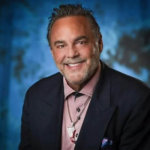 Nick Lowery is a former American football placekicker. In his career, he played for the New England Patriots, Kansas City Chiefs, and New York Jets.
Nick Lowery is a former American football placekicker. In his career, he played for the New England Patriots, Kansas City Chiefs, and New York Jets.
He played in college at Dartmouth College. Lowery was selected to the Pro Bowl three times and when he retired was ranked first in field goal percentage and also had the most field goals in NFL history.
As of 2018 he was 16th on the National Football League’s list of all-time scoring leaders, and is the Chiefs’ all-time leading scorer, with 1,466 points in his 14 seasons with the club.
